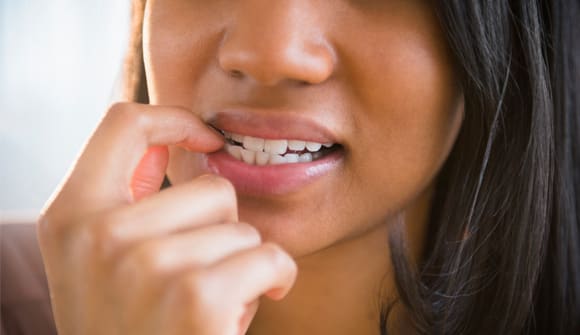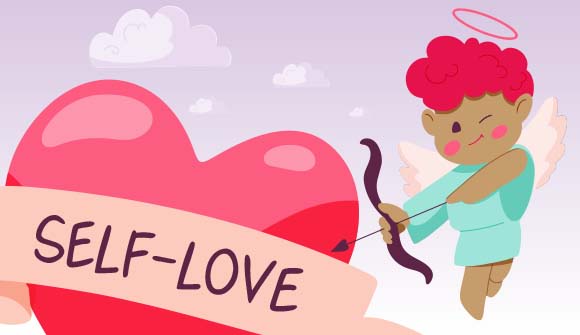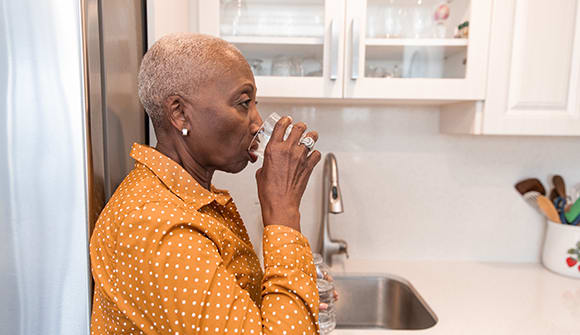How to break a bad habit
Understanding how it forms can help modify behavior.
Article Date:

We all have habits. Whether we perceive them as good habits or bad, they serve a purpose and form in similar ways.
A cue triggers an action, which triggers a reward – in this case, a release of feel-good neurotransmitters including, among others, dopamine. As the cycle repeats, the action moves from conscious to unconscious, becoming automatic and freeing up the brain's limited resources to focus on other decisions and activities in our day to day.
"When rewards support the body in restoring balance, say under stress, the unconscious mind isn't distinguishing the moral question of the habit as 'good' or 'bad,'" said Kal Kseib, DPsych, a health and wellness consultant at Baptist Health.
This understanding offers clues as to how we can undo unwanted, and often difficult to break, cycles.
"Labeling a habit as 'good' or 'bad' is natural, but not always helpful. A more effective place to start may be to recognize, and be compassionate to, the function of the habit and the underlying role it serves," said Kseib.
Become more self-aware of unhealthy habits
The first step toward breaking a habit is to acknowledge it and its consequences.
Most people who come to see Keith Brown, MPH, a wellness coach at the Baptist Wellness Center at Northside, are concerned about habits that relate to eating, sleeping, exercising and stress. Because habits are routine, Brown said people don't always connect the resulting consequences. For example, they might not correlate snacking while watching TV late at night with not getting a good night's sleep.
"Part of the self-awareness process involves establishing a routine that eliminates things that contribute to poor sleep," he said.
If a habit starts to get out of hand, finding support is vital.
"Where habits become addiction remains a gray area," said Kseib. "Ultimately, the distinction may be more a question of understanding the impact the habit is having on the person's life, work and relationships, and assessing the level of support they need."
How to replace a bad habit
There is no single best way to break a habit. Here are a few ideas for undoing unwanted behaviors:
1. Start small.
Starting small is a powerful strategy when it comes to breaking a habit. Change takes time and setbacks are a natural part of the journey. By starting small, you're setting the foundation for sustainable change that has a greater chance of sticking over time.
2. Practice meditation.
Meditation can help to build awareness of what's going on in the mind, body and surrounding environment. Studies have shown the practice of mindful meditation to be a highly effective tool for those seeking to quit smoking, for example.
3. Mind your (internal) language.
If judging our habits was helpful, wouldn't the habit have disappeared by now? Noticing internal dialogue like negative self-talk surrounding the habit and cultivating openness and acceptance can often be a more helpful approach.
4. Make "if-then" plans.
Understand and support the mind's tendencies in specific situations. Identify "hot spots" that trigger the habit you want to change and brainstorm ideas and plans ahead of time, including one for when things don't go the way you expect.
Brown regularly helps people with this. For those seeking guidance making healthier eating choices, especially around holidays, he advised being extra aware of eating habits in the days leading up to the event. This way, if they overindulge a little on the day, they won't undo the work they've already done. "And on the holiday, if you eat a piece of pie, then maybe skip the soda or sugary drink (think fruit juice, sweet tea, etc.) with it," he said.
5. Use an app.
Sometimes even the best intentions need support, and technology can often help.
"You'll probably need to try different options to find the right fit," recommended Brown. "For example, if your goal is to eat better, find and app that tracks what you eat so you can really think about your patterns. It's helpful to think about, and make a note of, the value that habits have in your life."
Baptist Health can help you overcome unwanted habits and more
If you have a habit that you just can't break, Baptist Behavioral Health is here to help. Call 904.376.3800 to speak with a patient coordinator who can match you with the right provider for you.



